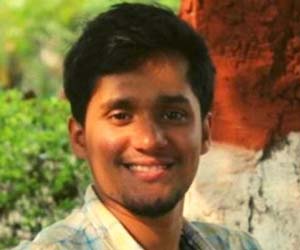The seventh lecture of the online talk series ‘Gītā for the Millennia’, based on Śrīmad Bhagavad Gītā by Svāmī Mitrananda of Chinmaya Mission, was hosted by Vivekananda International Foundation (VIF) on August 29, 2022. This session was a continuation of the discussion on the third chapter of the Gītā.
The talk began with Svāmiji clarifying what we mean when we say ‘give up ego and desire’. Ego and divine cannot exist at the same time, just as a ‘dreamer’ and ‘waker’ cannot exist at the same time. The moment we ‘wake up’, we are unaffected by the nightmare we saw a few seconds ago. These are two different states residing in one person. Similarly, in the state of ego, the experience of the divine would be minimal. In other words, the lesser the ego, the more we become closer to the divine. If we relate ego with ‘past’ and desire with ‘future’, we can understand these two terms better. Otherwise, it is challenging for us to even think of giving up ego or desire. Our entire past is our ego, whereas desire is something we expect to come in the future. These two moments have no existence, and we neither have any hold of them. Therefore, Kṛṣṇa advises to drop being in your ego/past, drop dwelling unnecessarily in desire/future rather focus on the present with equanimity. If we constantly practice focussing on the present with equanimity, gradually, our desire will be gratified, and our ego will be dropped. In other words, that mind, which is in ‘now’ is with the divine. Kṛṣṇa says, those who are able to follow these teachings, have profound faith (śhraddha) and are free from envy are released from the bondage of karma (ye me matam idaṁ nityam anutiṣhṭhanti mānavāḥ śhraddhāvanto ’nasūyanto muchyante te ’pi karmabhiḥ Gītā 3.31)
After mentioning the above points from the Gītā, Svāmiji turned the attention to one of the most important verses of the Gītā, where Kṛṣṇa says, "performing the action of our own calling (Svadharma) imperfectly is better than performing another’s prescribed duty perfectly" (Gītā 3.35). This understanding is necessary for burning down our vāsanās in life. Therefore, reflecting on identifying our own vāsanās and Swadharma is very important to make choices in life and to be happy. Svāmiji recollected that modern school education fails to help children in finding their vāsanās. The lecture further discussed the verses (Gītā 3.36 and Gītā 3.37), where Arjuna asks and Kṛṣṇa answers why people are driven to perform pāpaṁ unwillingly, as if by force
After discussing these significant verses from Chapter 3, Svāmiji gave a short introduction of Chapter 4, Jñāna-karma-sannyāsa-yoga, which he would discuss in detail in the next session.





Post new comment